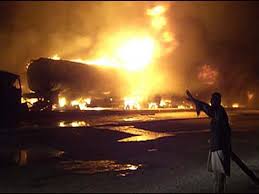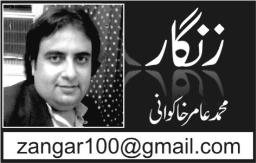


Perils of policing
By Ayesha Siddiqa
Friday, 20 Nov, 2009 (Dawn)
IT doesn’t take a genius to notice the mounting pressure on the PPP government and President Zardari, especially after former partner PML-N decided to adopt an aggressive policy towards the ruling party. This approach includes criticism of everything that happens under the PPP watch.
Recently, even the Islamabad police seem to have been dragged into the fray when the PML-N leadership in parliament reacted sharply to the story of the killing of a potential suicide attacker by the police at a security picket in the capital earlier this month. It is claimed that it was actually a fake encounter staged to improve the IG’s reputation.
A hue and cry continues to be raised despite the fact that the police was exonerated by an inquiry conducted by the Islamabad Capital Territory Administration. The police also say that no one came forward to claim the body before it was finally buried after two days of waiting.
However, the PML-N leadership in parliament continues to raise the issue. Perhaps the government needs to take them seriously since the party leadership is quite familiar with extrajudicial killings, which have always been common in Punjab. They would probably know better how judicial inquiries are managed in such cases. Given a chance to hold an inquiry themselves the said parliamentarians might have revealed more as some might have greater knowledge of extrajudicial killings. After all, it was about six months ago that Nanu Goraya lost his life in a fake encounter in Gujranwala.
The Punjab government had kept violent militant outfits like Sipah-i-Sahaba-i-Pakistan (SSP) and Lashkar-i-Jhangvi in check during the late 1990s reportedly through extrajudicial killings with the objective of controlling crime and violence in the largest province. It was the use of this methodology which resulted in the SSP’s retaliation in the form of an assassination attempt on then prime minister Nawaz Sharif.
Policing in our peculiar socio-cultural environment — particularly the capital city — is not easy. Islamabad is a mini-Pakistan where one can find a concentration of power, cliques, opposing forces, and all those socio-cultural vices that put additional burden on the law-enforcers. The IG police and his staff have to cater to approximately 1.5 million people. Given our VIP culture it is probably easier to take care of ordinary people than cater to hundreds of parliamentarians who constantly go in and out of the city and would be least forgiving if there was any letup in their personal security.
Besides, there are about 81 embassies, 76 ambassadors’ residences, 22 UN offices, 14 hospitals, 20 universities, 1,044 schools and colleges, 77 markets and 305 madressahs which have to be guarded with a police force of 10,332. The police also have to run around protecting the head of state and government and other dignitaries that visit the capital.
The presence of diplomats and foreigners does not make things any easier. What adds to the burden is the government’s indecision on other related issues such as the placement and management of 305 madressahs located within different sectors. The Lal Masjid incident indicated the dangers that could emanate from these seminaries. There is no system or policy to monitor people who come and stay in these madressahs from outside the city. While it is the government and parliament’s responsibility to decide on this critical issue, it is the police which face the consequences due to being placed on the front line.
The police force, which generally has a bad reputation and represents the authoritarian and barbaric face of the state, is also the force which has played a vital role in the past couple of years in the war against terror. While people eulogise the hard work and commitment of soldiers who have laid down their lives in the fight against terror, it is unfair not to remember the unsung heroes from the police who are often the first ones to lose their lives during a terrorist attack. Approximately 22 police officials have lost their lives in terrorist attacks in Islamabad. There have been five attacks in 2009 alone.
It is heartening to see lower-ranking police officials in Islamabad doing their duty in such tough times without the necessary wherewithal for their personal protection. These men don’t have bullet-proof jackets, sniffer-dogs, or explosive detection equipment. The police do not have equipment for communication intercepts, which is critical for tracking both criminals and terrorists and homing in on a potential suicide attacker. The ability to track mobile phone calls alone helps tremendously in tracking down criminal and terror networks.
Given the level of communication and competition amongst various government agencies, the police remain uncertain of the cooperation provided by various intelligence agencies. The fact that terrorists manage to attack the capital, move around with large amounts of explosive material and even sneak inside GHQ and the adjoining areas indicates a breakdown of intelligence. Parliament would benefit by probing the issue of the dearth of actionable intelligence. The police and ordinary citizens face the consequences of the failure of actionable intelligence. Better intelligence would also help sort out the problem of multiple pickets in Islamabad or other cities which are meant mainly to impede the movement of a potential terrorist towards a high-value target. But the cost is borne by ordinary people who are frustrated due to long queues.
The judicial system does not help either in cleaning up the current mess. The fact that there are today 13,000 criminal cases pending in the lower courts in Islamabad speaks volumes about the slackness of the judicial system. This is not just the case in the capital but throughout the country. It is a major burden on law-enforcement if criminals and terrorists continue to walk free due to the slackness of the judicial system. The case of Lashkar-i-Jhangvi’s Malik Ishaq getting acquitted by the courts from cases in which he was accused of committing over 80 murders is a prime example of the sorry state of affairs.
Not to mention the fact that the top brass of the police — unlike that of the intelligence agencies or other official outfits — also has to deal with the consequences of proactive higher courts and present themselves before the various parliamentary committees almost on a daily basis. While it is good to hold the police accountable, it also raises the issue of cutting into time which could be spent on improving security.
We know that we do not have the ideal police force. But due encouragement and appreciation of what the law-enforcers face could add to better security.
The writer is an independent strategic and political analyst.
ayesha.ibd@gmail.com
..
 Muhammad Amir Khakwani
Muhammad Amir Khakwani
Editor's Choice
--------------------------------------------------------------------------------------------------------------------------
Featured Post
--------------------------------------------------------------------------------------------------------------------------
"Let us build Pakistan" has moved.
30 November 2009
All archives and posts have been transferred to the new location, which is: http://criticalppp.com
We encourage you to visit our new site. Please don't leave your comments here because this site is obsolete. You may also like to update your RSS feeds or Google Friend Connect (Follow the Blog) to the new location. Thank you.
We encourage you to visit our new site. Please don't leave your comments here because this site is obsolete. You may also like to update your RSS feeds or Google Friend Connect (Follow the Blog) to the new location. Thank you.
--------------------------------------------------------------------------------------------------------------------------
Friday, 20 November 2009
We need to support Police in our war against Taliban terrorists
Labels:
Ayesha Siddiqa,
Muhammad Amir Khakwani,
Police,
Taliban,
Terrorism
Subscribe to:
Post Comments (Atom)





















1 comment:
The police role against the war of terrorism must be appreciated by every Pakistani who are performing their duties day and night without any fear of their own lives.
I Salute all the martyrs of Pakistan and the government who took such difficult decisions after the decision after the successful operation in sawat and now in waziristaan and i hope which will be also prove as a successful act against terrorism.
Post a Comment
1. You are very welcome to comment, more so if you do not agree with the opinion expressed through this post.
2. If you wish to hide your identity, post with a pseudonym but don't select the 'anonymous' option.
3. Copying the text of your comment may save you the trouble of re-writing if there is an error in posting.